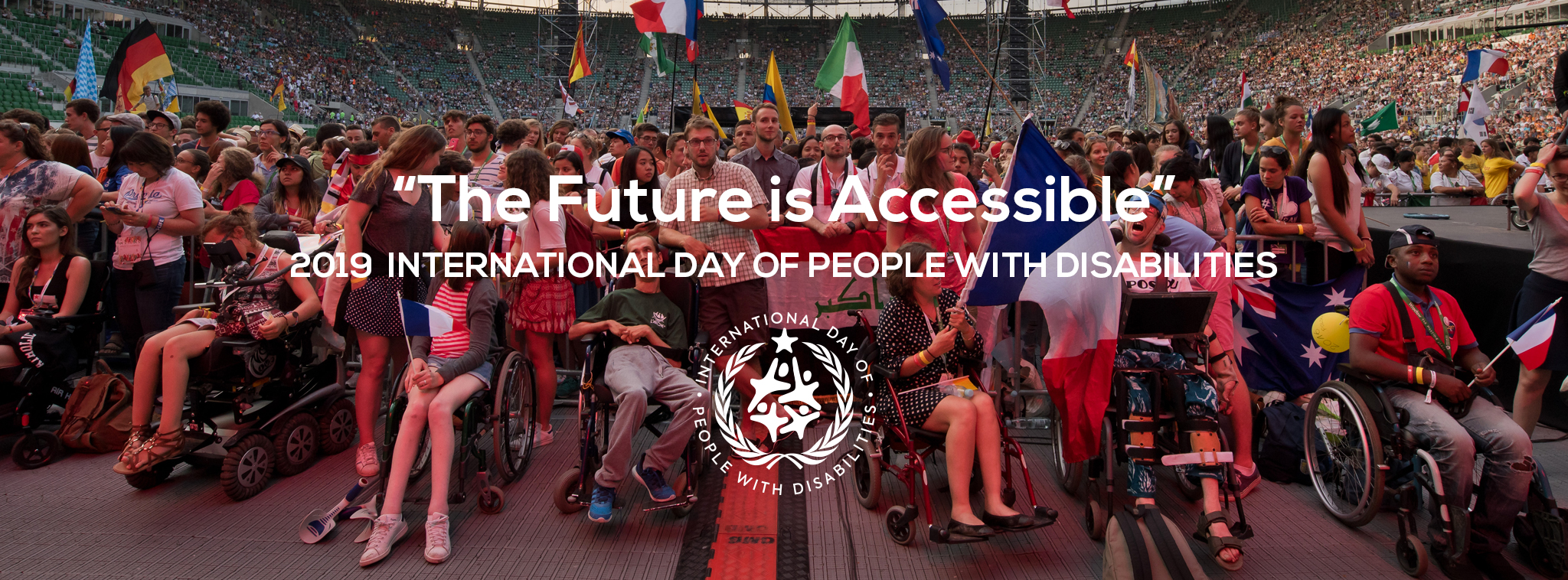Every year on December 3rd, the International Day of People with Disabilities (IDPWD) is celebrated throughout the world. It is a time to celebrate achievements and work together to increase inclusiveness and accessibility for people affected by disabilities.
History Of International Day Of People With Disabilities
The first IDPWD was held 27 years ago on December 3rd 1992. It was created by the United Nations (UN) as part of its commitment to create inclusive, accessible and sustainable societies and communities. IDPWD focuses on overcoming the barriers people living with disabilities face in our communities.
‘International Day of People with Disabilities is a special time to celebrate the achievements and contributions as well as increase public awareness, understanding and acceptance of people with disability.’ – Wade Lange, Managing Director of IDPWD
Looking back over the last 27 years, we have come a long way. You can see just how far we have come by looking at the IDPWD’s Disability Timeline. Exciting new assistive technology has been developed. Improved mobility equipment is now available. People have access to specialised, highly trained service animals. However, while improvements have been made, people with disabilities are still facing discrimination, marginalisation and inaccessibility today. Therefore, IDPWD is an important day to not only reflect, but also continue looking ahead to create a future that is accessible for everyone.
Theme For 2019 – ‘The Future is Accessible’
Every year there is a key theme set for IDPWD. The theme for this year is ‘The Future is Accessible’.
The aim is to create a future where no one faces barriers due to their disability. This includes eliminating discrimination in the workplace, education system and community. Everyone has a responsibility to do this. We can all call out barriers wherever we see them and work to overcome them.
IDPWD is of the view that no one is inherently disabled. In an ideal world no one should be disabled by their health impairment. IDPWD aims to increase accessibility so all people are included and able to participate in their community regardless of any health impairment they may have.

Celebrations And Events
IDPWD is celebrated by many different organisations, schools and businesses worldwide.
Organisations often choose to host fundraising events with proceeds going towards a charity supporting people with disabilities. Others host events to spread awareness. IDPWD also offers resources for people with disability, their families and carers.
The IDPWD website offers a range of different event ideas and fundraising ideas. Organisations can also find downloadable resources to help promote their events.
Inclusive Language
Just a few simple changes to they way we word things can make a big difference to help empower people. We can all use inclusive, positive language and encourage others to do so too. Here are some key ideas to use:
- Use the noun rather than the adjective by saying a ‘person with a disability’ rather than a ‘disabled person’. This extends to any type of health condition. For example, it is better to say ‘a person with epilepsy’ rather than ‘an epileptic’.
- Replace the word ‘care’ with ‘support’.
- Use the word ‘services’ instead of ‘programs’.
- Use language focusing on what people can do, rather than what they can’t do. Avoid terms like ‘defect’ or ‘deficiency’ or ‘disadvantaged’.
- Avoid language which can be patronising rather than empowering. Steer away from saying people are ‘brave’ or ‘suffer’ due to their disability.
Careline Personal Alarms
A Personal Alarm Service helps to overcome barriers by giving people with health impairments the security they need to remain independent in their own home. If you think you or a loved one could benefit from the service, Careline’s dedicated Customer Service Team is available on 0808 304 5083 or email at info@careline.co.uk.









